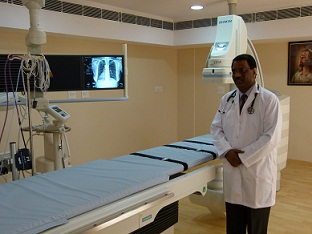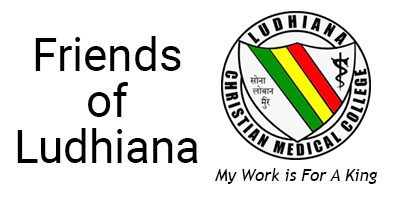
Health care is provided to the people of Ludhiana city and the surrounding area of Punjab and North India by the staff at the Christian Medical College Hospital.
The 670-bed hospital admits around 30,000 patients each year and treats another 350,000 through its outpatient department clinics, housed in a spacious and functional building near the hospital’s entrance.
The medical need in the city of Ludhiana has changed since Dame Edith Brown began the work over a century ago. Ludhiana, the “Manchester of India”, is a sprawling industrial city of over two million people situated in the fertile rich agricultural state of Punjab. It is a city of contrasts – many wealthy industrialists living alongside a large number of poor immigrant labourers seeking work in an area of 100% employment, and a high cost of living that only the wealthy can afford. There is now a plethora of hospitals and private clinics in Ludhiana offering general medical and surgical facilities.
In this context CMC Ludhiana has identified a number of needs which it is seeking to meet.
Specialist care
- upgraded specialist and diagnostic departments – such as microsurgery, burns treatment, nephrology, urology, neurosurgery, cardiology, cardiothoracic surgery, paediatrics, radiotherapy, radiology, biochemistry, pathology, haematology, blood bank;
trauma care for those involved in agricultural, industrial and road traffic accidents; - pioneering treatments such as the reimplantation of severed limbs;
- providing a ‘state-of-the-art’ tertiary referral centre;
Serving the Poor
- granting concessions to those unable to afford the cost of treatment in the hospital
- the Free Care and Low Cost Treatment Ward (established 1995), a ward dedicated to providing hospital treatment in a range of disciplines to those least able to afford it
Urban and Rural Community Outreach

CMC undertakes community outreach and public/primary health care and education in rural areas and the urban community (including the city’s slums)
- clinics and home visits organised by the Department of Social and Preventive Medicine;
health education, nutritional advice, ante-natal services and immunisation programmes; - assisting in home deliveries and caring for mothers and new-born babies by the domiciliary midwifery team;
- conducting medical, dental and eye camps in rural areas where there is limited or no access to health care;
- preventive work including the screening and treatment of school children.;
a network of outpatient clinics and base hospitals in rural areas, offering good quality health care to those unable, because of poor transport facilities, to get to CMC; - cancer screening camps in villages and in those areas where, due to the growth of the agricultural and industrial sectors, the incidence of cancer is particularly high.
In recent years CMC staff have also gone to provide emergency and ongoing medical relief and help to the victims of national disasters such as earthquakes and floods. In this way CMC’s ministry and influence has been evident in areas distant from Ludhiana.
Research
Recent national surveys have rated CMC among the top 15 medical colleges in India in terms of excellence in medical education and service to the nation.
To seek further improvement, the Betty Cowan Research and Innovation Centre (BCRIC), a centre to provide leadership, direction, support and monitoring on all aspects of research across all departments and colleges within the institution, was established in 2007. One of its main objectives is to research on prevailing health problems of the community served by CMC and to pioneer and lead in other areas of research. The Centre has signed a Memorandum of Understanding with the Punjab Agricultural University for collaboration in research and training, for the mutual benefit of both institutions.
A research project started in 2007 seeks to introduce CMC’s methodology in community health practice in four partner centres in North India. It uses CMC’s evidence-based model (developed over many years) to monitor a population’s health and is intended to build up the capacity of primary health care delivery, to train others in the use of the methodology, to modify the model to suit local practice, to operate research and to ensure good clinical governance.
Current need
The Director is relying on support from around the world to help him and his team to equip CMC to continue in the service of the people of India in the third millennium.
Friends of Ludhiana is currently involved in supporting the work by:
- assisting in staff development through seeking and/or financing training opportunities for CMC staff both in India and overseas;
- recruiting suitably qualified and experienced health and other professionals for short consultancy visits or voluntary service to share their knowledge, skills and expertise with CMC staff;
- raising funds for projects identified by the Director of CMC, including those to support poor patients;
- channelling grants from other bodies in UK, including those used for the purchase of equipment locally within India;
- contributing to the upgrade of the hospital’s infrastructure and equipment, including those of CMC’s newest units/departments;
- supporting and encouraging the work of the research centre (BCRIC).
Your support and interest can help CMC to continue its ministry and to remain professionally competent and socially relevant.
